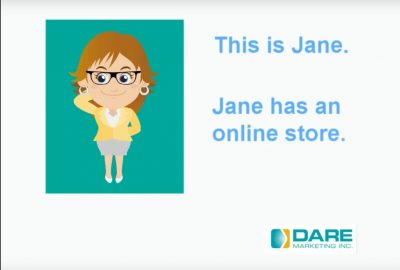e-commerce
Which eCommerce Platform Should You Choose?
When people decide to start an online business, one of the first questions they ask themselves is what eCommerce platform is right for their business. There are a wide range of options, and business owners are often confused on which way to go. Plus, it’s a big decision. Once a direction is chosen, it’s difficult, if not impossible to change later. This article explores some of the different options to help you decide what’s right for your business.
Two types of eCommerce Platforms
There are two basic types of eCommerce platforms. One is a hosted solution. The other is a self hosted solution. There are pros and cons to each and you need to decide what is right for you.
Hosted Solutions
Hosted solutions are where an eCommerce software provider basically gives you the keys to an already functioning store and you pay a monthly fee for the service. They typically do the set up, provide the payment solution and the software runs on their servers.
Pros of Hosted Solutions
• Low start up costs
• Little experience required
• It mostly just works
• You don’t have to worry about technical stuff like site speed, security, updates, etc.
Cons of Hosted Solutions
• You don’t really “own” the site.
• Support is not normally great. When you have a problem, their “Guru” service sends you a link to a “how to” article.
• You have little control over the setup. Many advanced SEO strategies are just not possible within their systems.
• Can be more expensive long-term
Examples of Hosted Solutions
Some of the more popular hosted solutions are: Volusion, Shopify, and Big Commerce. Most of the hosted solutions make up only a small portion of the web. For example, Shopify is one of the biggest hosted solutions making up only 5.2% of the top 1 million websites according to Alexa. In contrast, the top self hosted solution, Magento, makes up 26.2% of the market.
Self Hosted eCommerce Solutions
Self hosted solutions are where you purchase the software, or use a free open source solution, then set it up yourself, arrange for a host and pretty much do it all yourself.
Pros of Self-Hosted Solutions
• Complete control of the implementation.
• You build it, you own it.
• Once it’s built, ongoing costs are minimal.
• It’s yours; you can pretty much do anything you want.
• You can customize checkout and SEO however you want.
Cons of Self-Hosted Solutions
• Big upfront development costs.
• Takes a degree of technical expertise, or you have to hire a consultant.
• You are responsible for security, performance and upgrades.
Examples of Self Hosted eCommerce Platforms
The two biggest self hosted eCommerce platforms are Magento and Woocommerce. Magento makes up 26.2% of Alexa”s top 1 million eCommerce websites, while Woocommerce makes up 21.7%. These two platforms make up almost half of all eCommerce sites in the Alexa 1 million. You can see by the numbers that self-hosted solutions are definitely more popular.
What Platform is right for you?
Generally, if you’re a small business just starting out with little technical expertise, then a hosted solution like Shopify is probably right for you. You pay minimal set up fees, plus a small monthly fee and you’re up and running without having to worry about the technical details of running an eCommerce site.
On the other hand, if you plan to be a large on-line retailer. A self hosted platform is probably the best choice for you. There will be a significant investment up front, but once it’s built, it’s yours. Plus, you’ll be able to customize it exactly to your business needs and have greater control over checkout solutions.
An Easy choice:
Once you build your eCommerce store online, you have to think about fulfillment and how to get your products delivered to your clients. Dare Marketing is an easy choice. We’re eCommerce fulfillment experts who know your business and can help you grow and serve your customers. Contact us for more details and a free consultation on fulfillment options.





















Leave a reply
You must be logged in to post a comment.